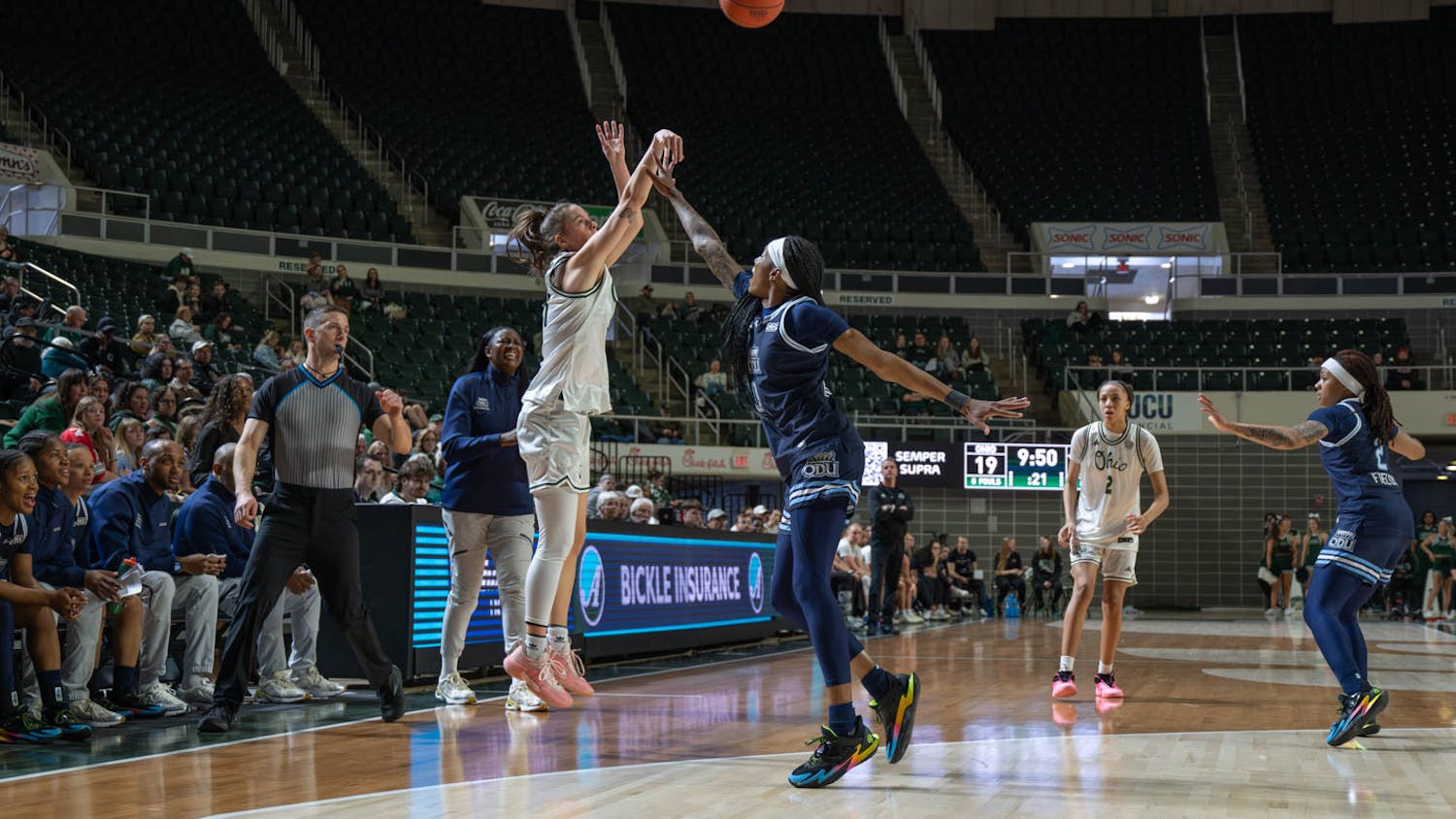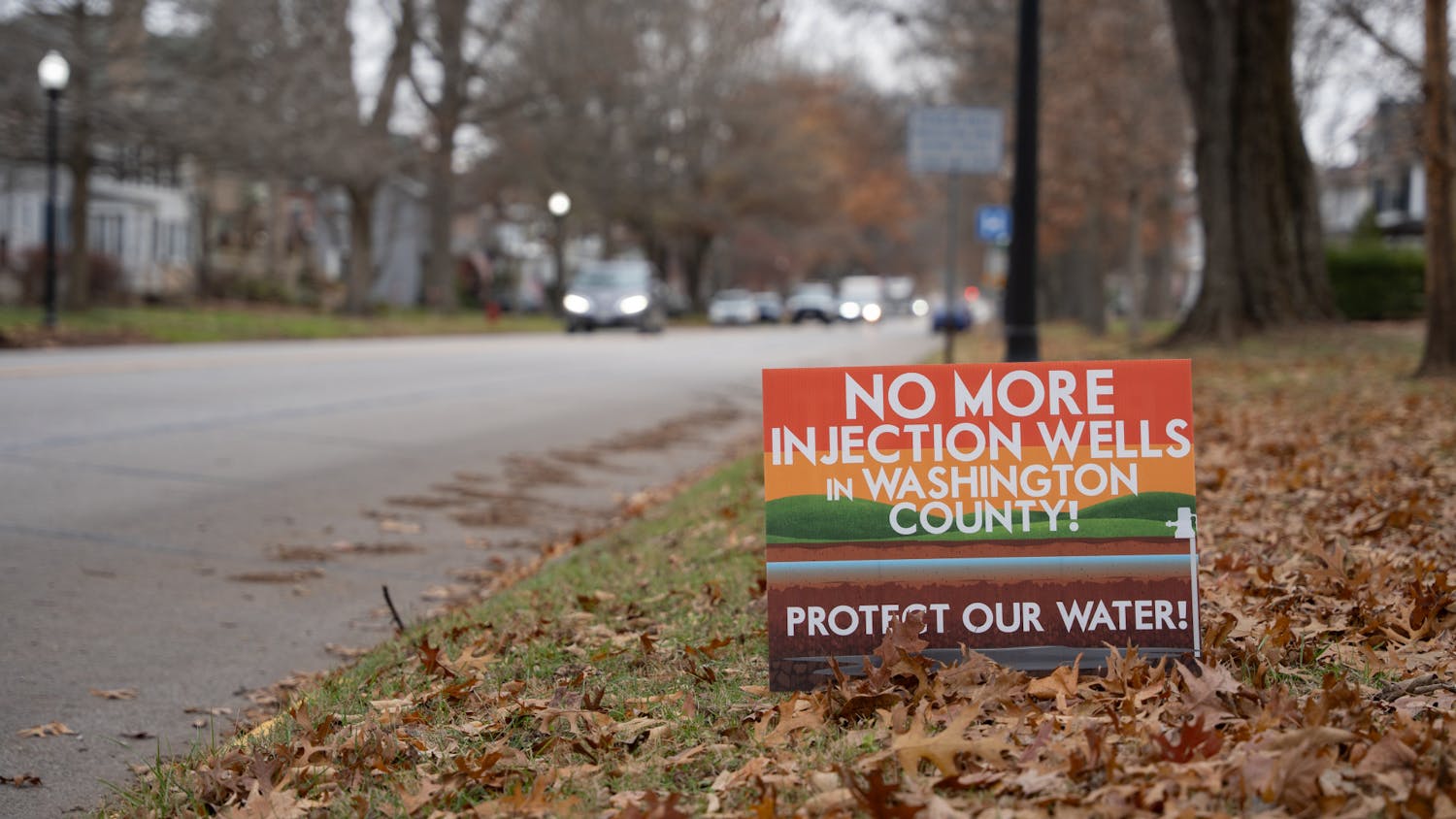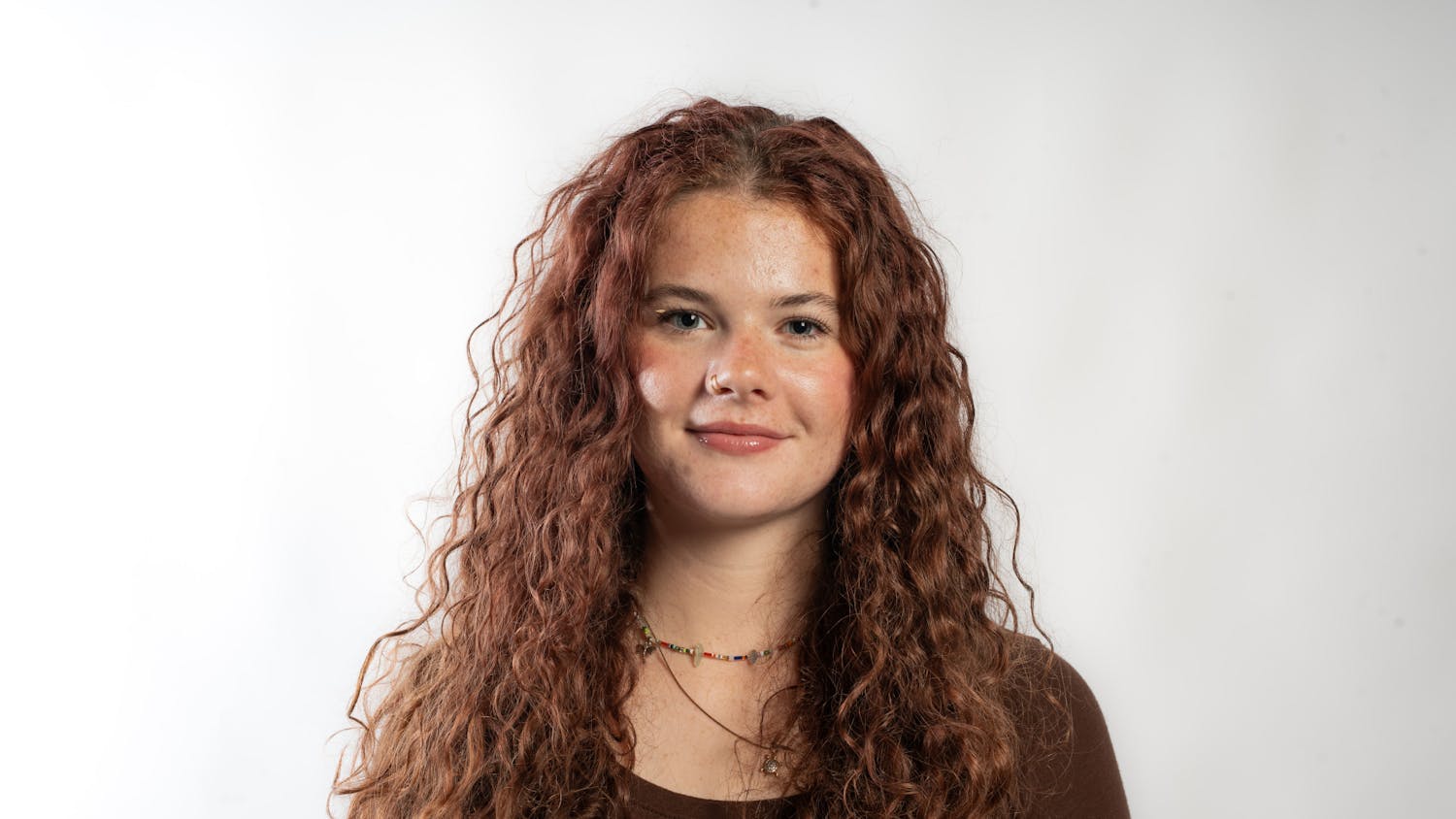Ohio University is reviewing criteria in gift agreements, which can affect students of diverse backgrounds, in light of the U.S. Supreme Court’s ruling prohibiting affirmative action policies in college admissions last June. A university spokesperson said OU’s actions take into account advice sent to them from other experts in higher education and communication from Ohio Attorney General Dave Yost.
Faculty in the Journalism School have spoken out against the university’s decision to pause gift agreements, according to a previous Post report.
According to a university news release, the purpose of the review is to identify gift agreements that can have their language revised. OU is pausing affected scholarships that represent a “small but important subset” of annual awards. During this review, OU has decided that a few scholarships will continue.
Yost sent a letter in June stating that universities must not utilize race-conscious admissions following the SCOTUS case. He also wrote that citizens are empowered to sue state actors who “violate their constitutional rights,” and employees of institutions will not be entitled to qualified immunity if they are litigated on race-conscious admissions.
The Harvard case only mentioned race-based admissions and mentioned scholarships once in passing. According to Bethany McCorkle, who was quoted in a report by the Statehouse News Bureau, Yost told university leaders in a call in late January that compliance under the Harvard case includes scholarships.
“Although the Court did not expressly prohibit race-based scholarships, it indicated that ‘eliminating racial discrimination’ means eliminating all of it,’” McCorkle wrote in an email published by the Statehouse News Bureau. “Race-based scholarships discriminate on the basis of race in awarding benefits. Therefore, it would follow that such programs are unconstitutional.”
While the university has officially confirmed scholarships like the John Newtown Templeton Scholarship and the Appalachian and Urban Scholars program will continue into Fall 2024, Andrew Alexander, an alum of the Scripps School of Journalism, set up a scholarship with his wife Beverly, is unsure if his scholarship, the Andrew Alexander Scholarship, will continue.
He said if OU decided his scholarship could not continue to have a preference for people of diverse backgrounds, he would find a way to offer the scholarship privately to bypass the university.
“These types of scholarships are helpful in countering racial discrimination in society,” Alexander said. “From the standpoint of journalism, they're important because if we have diversity amongst students, graduates will have more diverse newsrooms when they get hired, and when newsrooms are diverse, news coverage is more accurate.”
Larry Neumeister, a journalist who attended Ohio University in the late ‘70s and early '80s and covers the Manhattan federal court for the Associated Press, helped establish the Clarence Page Scholarship for African American Students of Journalism in 2019. He said he had intended the scholarship to go to Black students, but he was told race-specific verbiage could not be used.
Initially, OU suggested going to the NAACP or other outside organizations to set it up privately. However, Neumeister had been told any large scholarship donation through the school would be matched for 50 cents for every dollar.
“I thought, ‘Well, it's almost discriminatory for me to take it to a place somewhere else … where it won't get that money that scholarships maybe more geared toward white people would get,” Neumeister said. “The population that the scholarship is intended to serve should not be discriminated against by not getting access to some of that matching money.”
Neumeister said to work around the race-specific language, he complied with requirements but took advantage of the university’s offer to name it anything he wanted.
Associate Professor of Political Science Vincent Jungkunz said the university reviewing these scholarships to comply with Yost’s guidance demonstrates a backlash against diversity, equity and inclusion efforts in Republican policies.
“If the Harvard decision becomes a precedent that is applied to scholarships, then (the removal of diversity scholarships) is more consequential than the Harvard decision for students of color,” Jungkunz said.
According to the previous Post report, some members of the School of Journalism scholarship committee have decided to abstain from voting on scholarship recommendations because they are worried they will not be protected from litigation.
Beyond legal action, Jungkunz said he is concerned the removal of diversity scholarships will affect students' livelihoods and education experience.
“Scholarship is so important … The relationship between race and socioeconomic status, the ability to pay for college is going to be much more difficult,” Jungkunz said. “That's where it's going to be really consequential for students from these various diverse backgrounds.
Jungkunz said there are a few options the university can take to continue to offer these scholarships. One is the pool and match system.
Pooling and matching puts all scholarship donations into a pool and distributes them based on merit. The source of the money and the student receiving the scholarship are only connected after the university conducts a race-neutral review.
Jungkunz said Chief Justice John Roberts keeps the door open on race-based admissions in the wording of the Harvard case. He said the case stated universities cannot give any boost to people of diverse races, but applicants can write a narrative about how race impacted their lives in a meaningful way. He said the same reasoning can be used for scholarships if they are based on the Harvard case.
While there are growing concerns about the potential for legal actions toward faculty members, Jungkunz said he was unsure how the courts would react to a case like this.
“I don't think that individual faculty who sit on a committee and process these things would likely face any kind of legal action,” Jungkunz said. “What would be more likely is that … the division at the university who deals with scholarships … would be sued.”
Jungkunz said because Yost’s letter threatens litigation against faculty, it could bankrupt them if they are held liable.“It puts a shadow of legal jeopardy upon a lot of people,” Jungkunz said.
Katie Millard contributed to this report.






